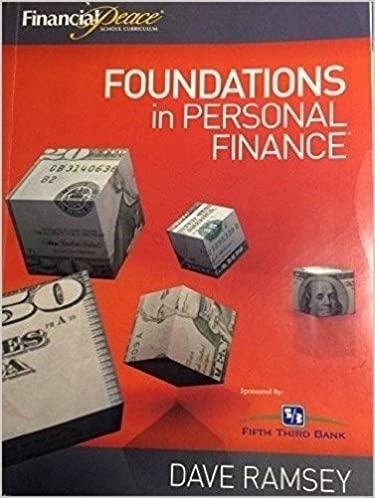Answered step by step
Verified Expert Solution
Question
1 Approved Answer
It is the old days and you are a corporate finance executive at Atari Corporation. You have been asked to evaluate from a corporate finance
It is the old days and you are a corporate finance executive at Atari Corporation. You have been asked to evaluate from a corporate finance perspective the proposed development of the Atari Video Computer System VCS The developers think that the system stands a good chance of creating a large consumer demand for video games that people can play at home. The major innovation is that the VCS does not have builtin games but will play games from cartridges that plug into the system. You need to evaluate the VCS using net present value NPV
The financial data are authentic real for the most part. Year of the project is and year is Financial data for the VCS project are as follows:
If the Atari VCS goes into production, a capital investment of $ will be required plus working capital of $ These amounts are invested or allocated in
$ has already been spent on researching and developing the product.
Demand for the Atari is forecast for ten years as follows:
o : units.
o : units.
o : units.
o : units.
o : units.
o : units.
o : units.
o : units.
o : units.
o : units.
For the period to the Atari VCS will sell for $ per unit.
Increased competition during the period to will require large price discounts and the VCS will sell at $ per unit during these years.
For each system sold, game cartridges will be sold at a price of $ per cartridge.
The system has a variable cost of $ and each game cartridge has a variable cost of $
The company will initially spend $ each year on advertising but will increase this to $ for the period to in response to increased competition
Fixed costs start at $ but increase at percent each year as the division expands.
The capital investment will be depreciated on a straightline basis to zero over the period of ten years.
All working capital will be returned in the final year of the project.
The taxation rate is percent. If you have a negative EBIT in any year, assume that the taxes for that year are zero.
You have determined that a discount rate of percent should be applied to the project.
Step by Step Solution
There are 3 Steps involved in it
Step: 1

Get Instant Access to Expert-Tailored Solutions
See step-by-step solutions with expert insights and AI powered tools for academic success
Step: 2

Step: 3

Ace Your Homework with AI
Get the answers you need in no time with our AI-driven, step-by-step assistance
Get Started


